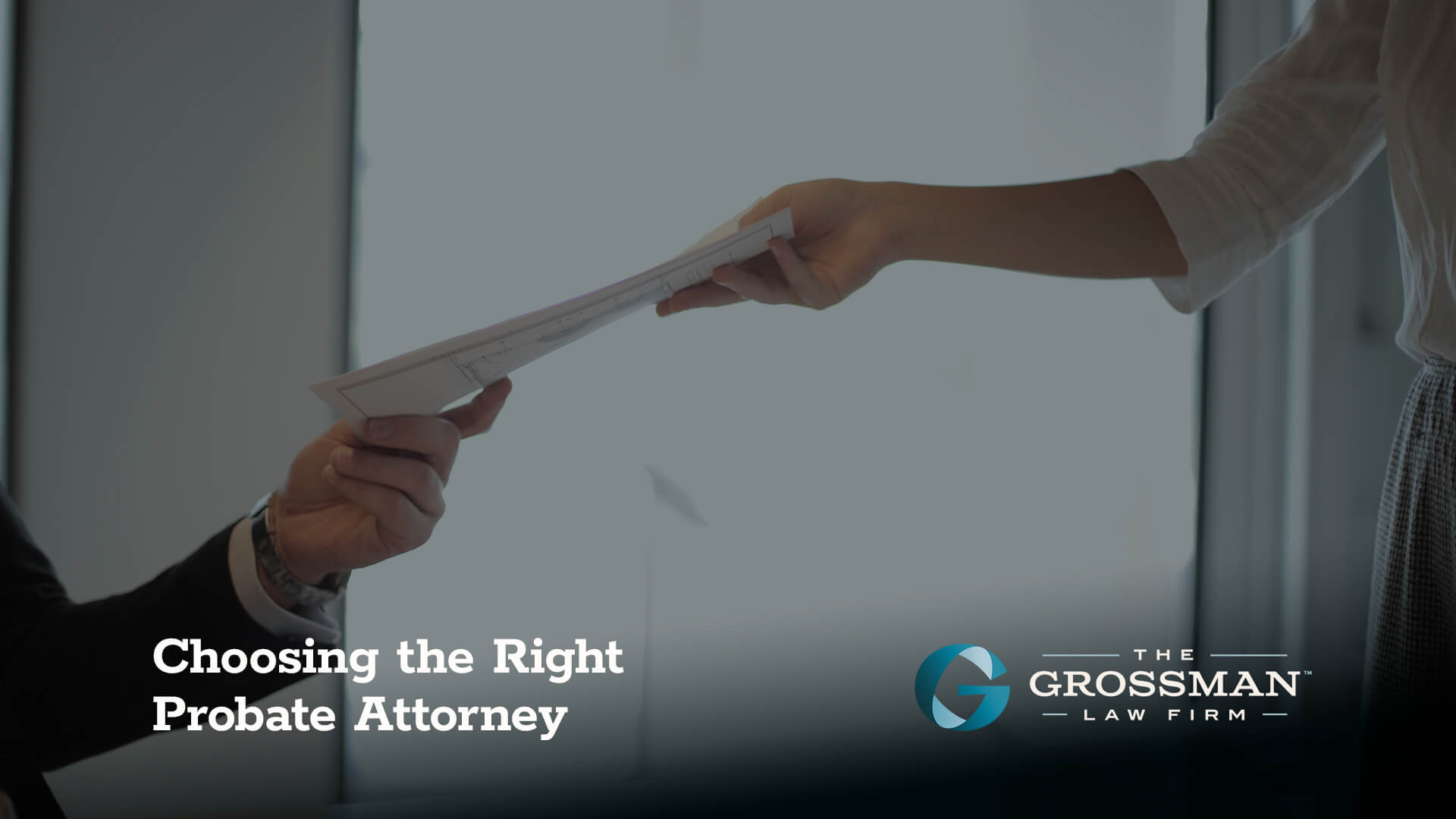
Losing a loved one is hard, but getting your inheritance shouldn’t be. At The Grossman Law Firm, we understand that probate and inheritance disputes aren’t just about legal battles. They are about emotions, family, and tough decisions. We’ve helped clients navigate the grief, confusion, and betrayal intertwined in inheritance disputes. Whether you are managing a loved one’s estate or dealing with inheritance disputes among beneficiaries, choosing the right probate attorney can make all the difference.
At The Grossman Law Firm, we have guided families in Southern California through probate and probate litigation for over two decades. Our experience has shown us that choosing the right attorney can provide clarity, reduce stress, and protect your loved one’s legacy.
But how do you ensure you have the right attorney on your side? Here are five essential questions to ask before hiring a probate attorney in California.
5 Questions to Ask Before Hiring a Probate Attorney
Question 1: What is Your Experience with Similar Cases?
The first question you should ask any probate attorney is about their experience. Probate and probate litigation are highly specialized areas of law. Not every attorney has the expertise to handle them effectively. Ask your potential attorney how many probate cases they have handled and whether they are a certified specialist in probate, trust, and probate litigation.
At The Grossman Law Firm, our attorneys are seasoned professionals with extensive experience in both probate and probate litigation. We understand that each case is unique and requires a tailored approach.
Question 2: Can You Walk Me Through the Probate Process?
Every probate case is different, depending on the complexity of the estate, the presence of a will, and whether any disputes arise among beneficiaries. An experienced probate attorney must be able to explain how the process will unfold in your situation. That includes outlining key steps, timelines, and potential challenges.
TGLF is dedicated to guiding our clients through every step of the probate process with clarity and confidence. From the moment the initial petition is filed to the final distribution of assets, we ensure you are fully informed and prepared for what lies ahead. Your understanding and peace of mind are our top priorities.
Question 3: How Do You Charge for Your Services?
Legal fees can be a significant concern for those facing probate. Probate attorneys usually have statutory fees, which are paid to the personal representative and the attorney representing the personal representative. These fees are determined by law and calculated as a percentage of the estate’s value. These fees are calculated as a percentage of the estate’s value. Or attorneys can even set up a contingency fee for certain litigation cases. It is important to understand how your attorney charges and what additional costs may arise, such as court filing fees or expert witness fees.
At The Grossman Law Firm, we believe in transparent billing practices. Our team will clearly explain our fee structure and any additional costs you may encounter.
Question 4: What is the Estimated Timeline for Probate?
Probate can be a lengthy process, sometimes taking several months to several years, depending on the complexity of the estate and any disputes that arise. A knowledgeable attorney should provide a realistic timeline based on your situation.
We help our clients understand the factors that may impact their case’s timeline and work diligently to resolve matters as efficiently as possible.
Question 5: Will There Be a Paralegal Assigned to My Case?
Paralegals play a crucial role in the probate process. They are responsible for conducting legal research and gathering relevant information about cases. They manage and maintain case files and deadlines, and assist in preparing legal documents for accounting and probate court. Their duties include communicating with clients, court staff, and other parties involved in probate matters.
A dedicated point of contact can be incredibly reassuring during the probate process. Ask if a paralegal or another team member will be assigned to your case for routine questions and updates. At The Grossman Law Firm, we provide personalized support. Our team is always available to answer your questions and guide you through the process.
Choosing the Right Probate Attorney
Choosing the right probate attorney in California is an important decision that can significantly impact your experience during a challenging time. By asking these five essential questions, you can make a more informed choice and ensure you have the support and guidance you need.
An experienced probate attorney can make all the difference by providing knowledgeable legal support and navigating you through the intricacies of the probate process more smoothly. If you are facing probate in Southern California, TGLF is here to help. With over two decades of experience, we are committed to providing compassionate, knowledgeable representation.
For more information on probate, explore our resource, “California Probate: What It Is, What You Should Know, And How It Works,” available on our website. If you would like an honest evaluation of your case, please fill out our Get Help Now form. You can also contact our office to schedule your free 30-minute phone consultation by calling us at (888) 443-6590.
FAQ:
What is probate, and when is it required in California?
Probate is the legal process of settling a deceased person’s estate, including validating their will (if one exists), paying debts, and distributing assets to beneficiaries. In California, probate is generally required if the estate’s value exceeds $184,500 (as of 2023) or if the decedent owned real property solely in their name.
When does probate litigation start?
Probate litigation starts when disputes occur during the probate process. Unlike standard probate, which is administrative, probate litigation involves contesting the will to resolve conflicts.
What are the responsibilities of an executor or personal representative?
An executor or personal representative is responsible for managing the estate during probate, which includes gathering assets, paying debts and taxes, managing estate property, and distributing assets to beneficiaries according to the will or California law.
